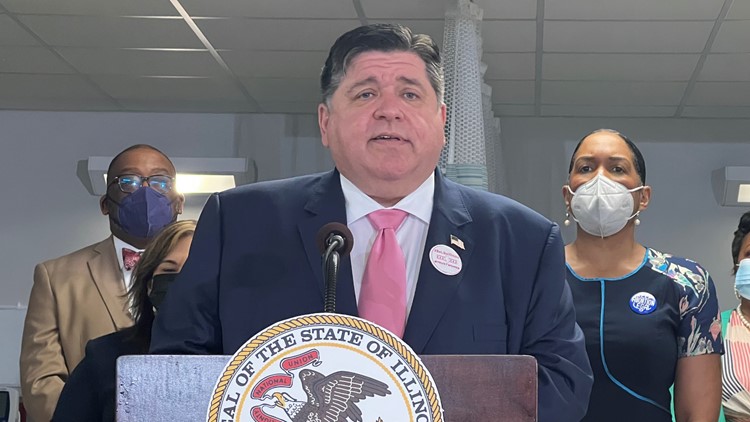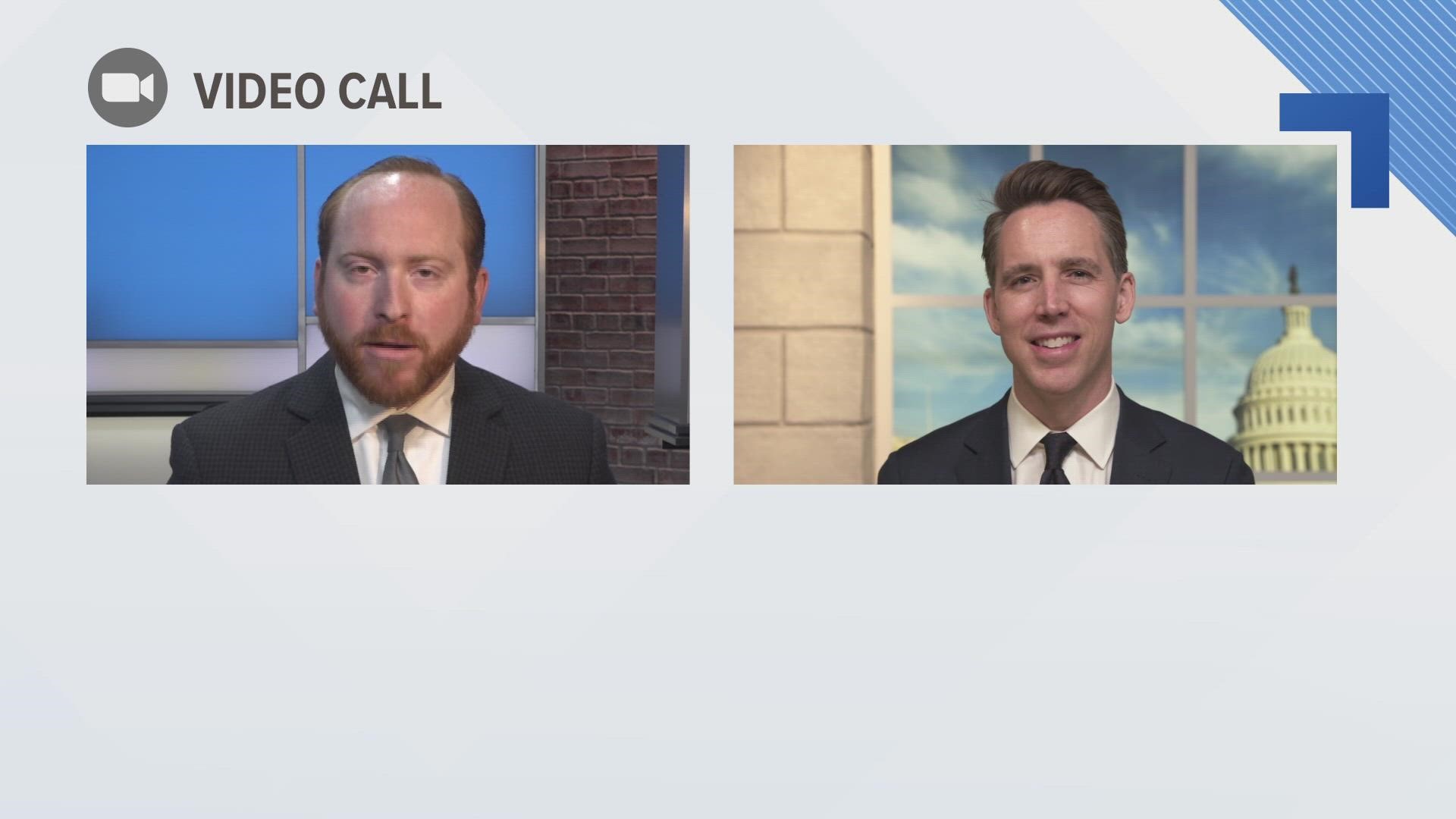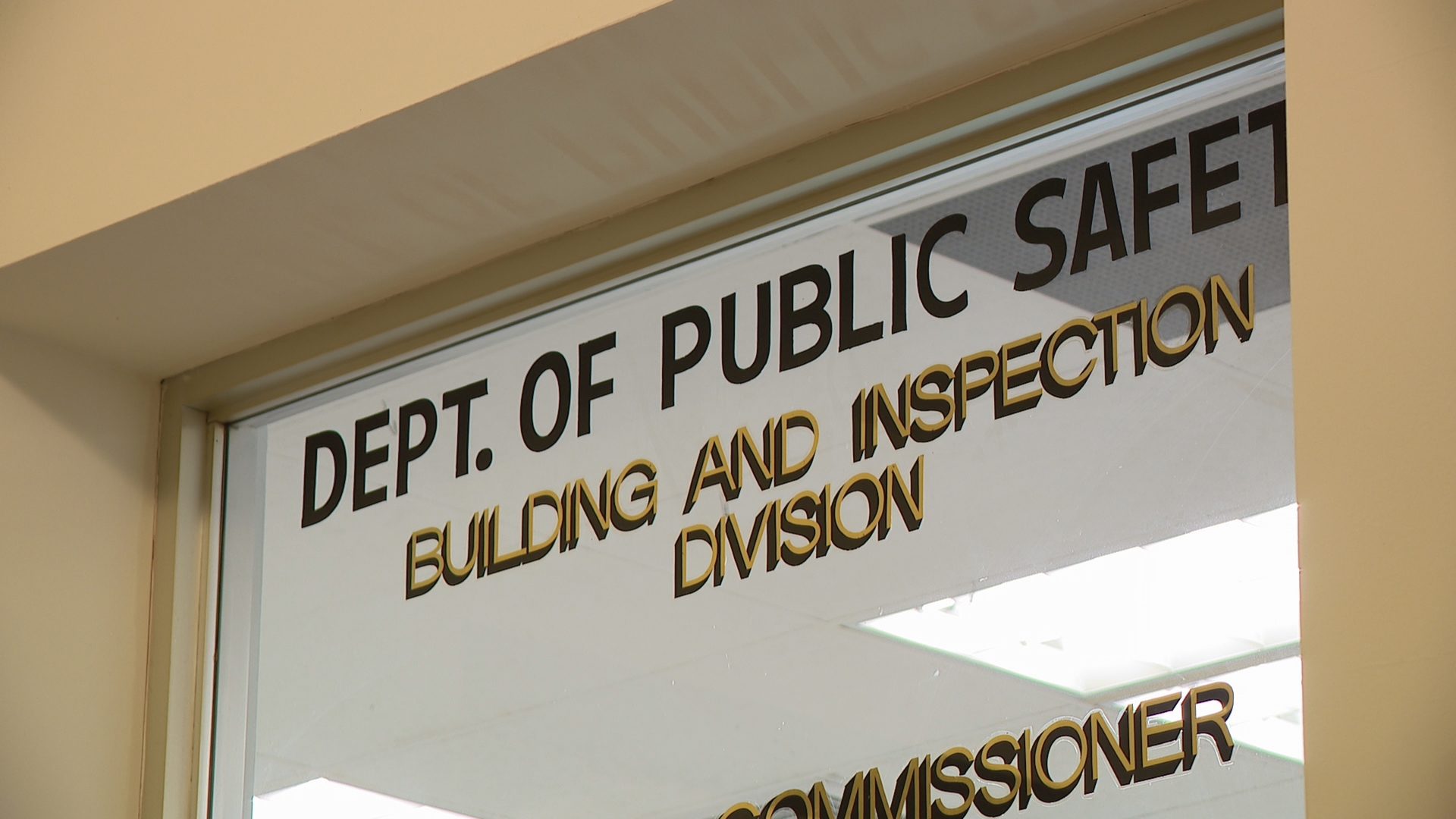FAIRVIEW HEIGHTS, Ill — The Supreme Court's pending decision to return the polarizing political debate over abortion back to legislators could test whether the U.S. Senate in its current form can still settle our nation's most difficult disagreements.
As state legislatures and governors across the country are poised to take charge over abortion policies, Illinois Governor J.B. Pritzker, a first-term Democrat, painted his state as a safe-haven for women seeking the procedure.
"This is an island, this state," Pritzker said at a Planned Parenthood in Fairview Heights on Wednesday morning. "And can you imagine what it would be like in the country if Illinois was not pro-choice?"
Pritzker used the platform to push for swift political action in the "world's greatest deliberative body," even if it means dispensing with long-held traditions that bottle up action until a matter is thoroughly debated.
"There is no archaic rule, no parliamentary maneuver -- no matter what -- that is more critical than protecting the lives and bodily autonomy of more than 160 million people," Pritzker said. "It's long past time for this nation to codify Roe v. Wade into law. If it takes overhauling the filibuster, then overhaul the filibuster. If it requires countless hours of pleading and deliberation, then get to work. If it takes courage, find the courage."
Later, asked if he had any concerns that removing the 60-vote threshold to defeat a filibuster might invite a national abortion ban under a Republican-controlled Congress, Pritzker justified the emergency move because Republicans used the tactic to put conservative justices on the court.
"The Republicans have done this before. You've seen it on Supreme Court nominees," Pritzker said. "It's not like we don't expect that they would do precisely that."
Senator Josh Hawley (R-MO), who sits on the Senate Judiciary Committee, said he was "not aware of" any instances where Republicans pushed the filibuster aside for the sake of political convenience.
"If the filibuster didn't exist, Republicans would have gotten a lot done lot more done in the last Senate," Hawley said.
All 50 Republicans in the Senate and one Democrat -- Joe Manchin of West Virginia -- voted against the Women's Health Protection Act hours after Pritzker's plea. That outcome underscored his calls for political action in peaceful protests -- and at the ballot box -- to persuade or replace the politicians in power to protect abortion access.
Until there are enough votes to enshrine abortion rights in federal law, Pritzker feels political protests could change some politicians' minds.
"My mother fought for women's liberation and reproductive rights, and she showed me how protests can change the minds of politicians who are stuck in the past and how important it is to turn protest into action," he said.
Until 2017, Illinois had a trigger law on the books that would have outlawed abortions in the Land of Lincoln if the Supreme Court overturned Roe v. Wade. Considering the nation's high court is on the verge of sending those decisions back to states, how does Pritzker view his Republican predecessor Bruce Rauner's decision to buck his own party and sign a law that removed that trigger law from the books?
"Prior to his signing HB 40, he threatened to veto it for months and months and months," Pritzker recalled.
"We all protested, we made spectacles of ourselves, making sure that the governor knew that the people of Illinois were very much opposed to his veto," he said. "I showed up with 1000s of cards from people across the state in his office to deliver those in 2017 to make sure that he knew that this was not something that was going to be acceptable for him in an election year. And I think that's ultimately why he gave in."
Hawley criticized protests taking place outside conservative justice's homes, and vandalism targeting anti-abortion centers.
"Firebombing pro life offices, attacking churches... I mean, this is criminal behavior, and it should be prosecuted as such," he said.
On that point, Pritzker agreed, urging peaceful protest instead of violence.
"If there are physical attacks, if there are threats that are made, we will hold people responsible," Pritzker said. "We will imprison people. We will hold them responsible, and they will go to jail."
Several Illinois House Democrats from the Metro East region joined Pritzker's criticism of the pending Supreme Court decision.
"I've had to check the calendar this past week a couple times to remind myself that we actually are in 2022," Rep. Katie Stuart (D-Edwardsville) said. "The rights that have existed for women for pretty much my entire life, rights that generations before me have fought for, are being eroded all across the country."
"This past Sunday, we celebrated Mother's Day, and all around our nation, we highlighted our mothers," Rep. LaToya Greenwood said. "To continue to celebrate Mothers we need to ensure that we have quality health care, affordable childcare, ensuring that mothers do not have to watch their children grow up in poverty here in our great state of Illinois. And most importantly, we should be ensuring that no one is forced to become a mother against her will."
Natalee Clemons stepped up to the microphone and described her experience seeking an abortion at a clinic in Missouri in 2018 and the "medically unnecessary hoops that I had to jump through."
"I was 19 years old, about to go to college, and newly single when I learned that I was pregnant, despite being on birth control," she said. "Parenting was not an option for many reasons -- some personal, some medical -- but no matter how you cut it, I needed to end my pregnancy and I needed to do it quickly."
"In states like Missouri, accessing this basic health care service is anything but quick and convenient," she said. "I had to take two trips, sit through state mandated propaganda my doctor was forced to read to me, and of course navigate the financial burden because of private and public insurance bans in the state. If it weren't for abortion funds, like the Missouri Abortion Fund, and a big sister who had some money and savings, I too would have been banned from a procedure that was and is still legal today."
Pritzker, who often refers to Illinois as the "most progressive state in the nation on abortion," chose the backdrop of an abortion clinic 11 miles from the Missouri state line to paint the contrast with that state's trigger law, which is set to go into effect and ban all abortion the moment the Supreme Court issues its Dobbs decision.
According to the officials at that Planned Parenthood site, more than three in four women who seek an abortion there are visiting from red states like Missouri, Kentucky, Texas, and Oklahoma.
"By the time many of these out of state patients make it to Fairview Heights, Illinois, they have traveled further than anyone should have to physically and emotionally," Pritzker said. "People should not have to endure trauma after trauma to be in control of their own bodies. But that's exactly the burden that this right-wing Supreme Court and anti-choice governors and state legislatures increasingly put on the backs of millions of women."
Missouri Governor Mike Parson's office declined to comment. .




